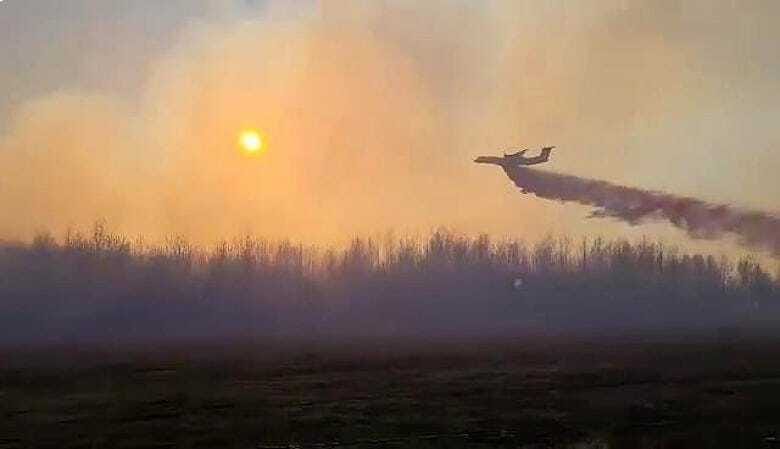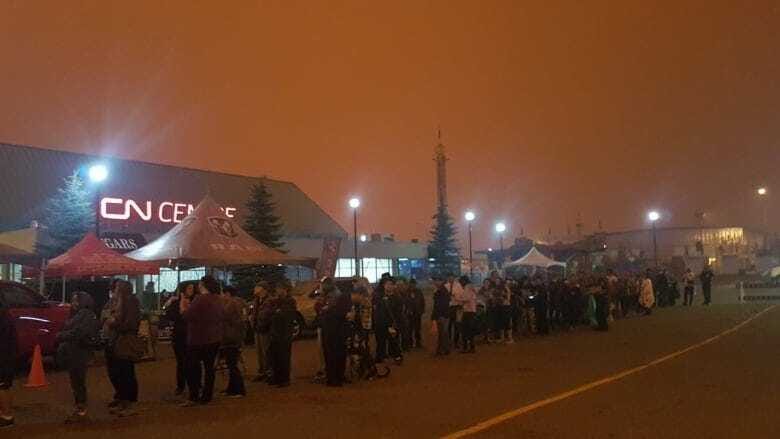
It is, unfortunately, that time of year again. I first wrote this guide on Facebook back in 2019 and since then it has been shared thousands of times which leads me to believe people find it useful. I’ve just updated it after reviewing the links as evacuation orders come into place throughout the region.
TL; DR: Go to your local government websites, sign up for their emergency notification service, put together an emergency kit and let's all be safe.
Orders and alerts
1. Evacuation order and alerts are put into place by local governments, relying on advice of experts (ie B.C. Wildfire Service). Orders or alerts will go out first through the local government, then through Emergency Info B.C. A compilation of all evacuations orders/alerts can be found at https://emergencyinfobc.gov.bc.ca though they can sometimes be posted there about an hour after they are put into place by local government.
2. It's also a good idea to be familiar with how your own local government communicates — not just the municipality, but the regional district it's within. List of regional districts: http://civicinfo.bc.ca/regionaldistricts
3. The language of evacuations:
An evacuation ORDER means leave now, don't go home, don't start packing, it's time to go.
For this reason you should be watching out for evacuation ALERTS which means you don't need to go, but you may have to at a moment's notice
Here's an important thing about alerts — once they turn into orders, you can't go back into the evacuated area. So for example, if your home is under evacuation ALERT and you go to town to go shopping and that turns into an ORDER — you can't go back home. This happens. I've met people who were at work of school when an alert changed to an order and they had nothing but the clothes on their back
If you're under an evacuation ALERT and you leave your home for any reason BRING THE ESSENTIALS WITH YOU. Medication, papers, valuables.

Being prepared
4. In terms of what sort of stuff you should have in a go kit in case of an evacuation, lots of resources. Here's three.
Get Prepared (federal): getprepared.gc.ca/index-eng.aspx
And one specifically for wildfires: https://www2.gov.bc.ca/gov/content/safety/emergency-management/preparedbc/know-your-hazards/wildfires
5. Worried about whether roads will be closed? First off, good to know that officials do their best to call an order BEFORE main routes get cut off-- sometimes an order will be given because the highway in and out of town will be cut off by fire, even if homes aren't yet at risk
But aside from looking at your local gov't website/evacuation order, you've got
No computer/internet access? You can call 1-800-550-4997.
6. If you are told to leave, you will also be asked to check in at a reception centre. This is so officials can make sure they know you're safe, and so you can find out what other resources you have -- grocery vouchers, places to sleep, stuff like that. https://www2.gov.bc.ca/gov/content/safety/emergency-management/preparedbc/evacuation-recovery
Understanding fires/getting more info
7. UNDERSTANDING FIRES. The source of information about wildfires is the BC Wildfire Service . You can see a list of wildfires here http://bcfireinfo.for.gov.bc.ca/hprScripts/WildfireNews/Fires.asp?Mode=normal&AllFires=1&FC=0&fbclid=IwAR2J_AkaaSgx7jycr9k9OkTKBY1ksci0EPv-I42QFIZvO2WqMH8MluAyomg
And a map here: https://wildfiresituation.nrs.gov.bc.ca/map
Some definitions:
A "wildfire of note" are wildfires that either are pretty easy to see or that actually pose a threat to people/places.
An "interface fire" is a wildfire that is or has the potential to start spreading into cities/communities/homes/buildings. Those are the ones to watch.
A complete glossary of wildfire-related terms, as used by the B.C. Wildfire Service: https://www2.gov.bc.ca/gov/content/safety/wildfire-status/about-bcws/glossary
8. It's also important to have reasonable expectations about how frequently you/we will get updated about the status of wildfires. Trust me, I know-- we'd love to have real-time information. But that's not feasible-- firefighters are fighting the fires, that's the focus.
What B.C. Wildfire Service DOES do is provide regular updates, and when the situation changes in a way that affects if people have to be ready to leave their homes, and that info comes out through the channels mentioned earlier: B.C. Wildfire, EmergencyInfoBC and local government.
There are also not going to be updates overnight. Those won't come, because the assessments happen during the day. They want to be able to do overall assessments, sometimes flyovers, to get a sense of things

Air quality
9. And finally — air quality. Three places for you.
Public weather alerts, such as air quality advisories, go here https://weather.gc.ca/?province=bc
Air quality in B.C. in list form: https://www.env.gov.bc.ca/epd/bcairquality/data/aqhi-table.html?fbclid=IwAR3WS9S3_4emFJCxe6MU9NqrqdTwoalwZJ1B6rLo19FMHjJaKs65681pqXU
Northern Capital News is a free, daily newsletter about life in Prince George. Please consider subscribing or, if you have, sharing with someone else.
Send feedback by replying to this email. Find me online at akurjata.ca.